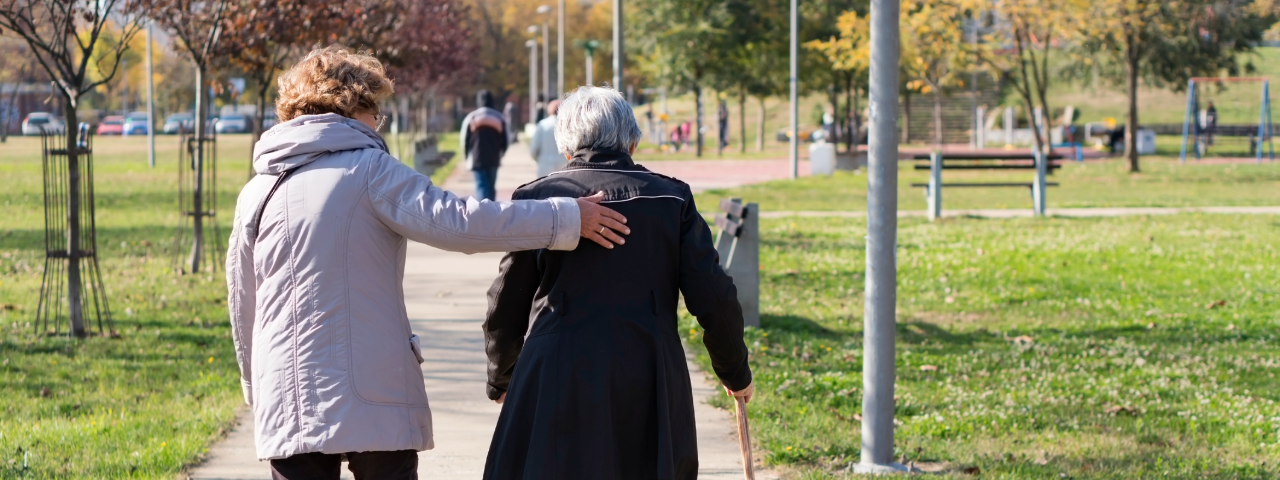How to Have a Hard Conversation When Conversation Is Hard
Body
Approximately 2.5 million people in the United States live with aphasia, a communication disorder caused by damage to language areas of the brain.
Individuals with aphasia may have difficulty expressing or understanding language, which decreases their ability to converse with family, friends and even healthcare professionals. Despite intact cognitive skills, they struggle to communicate their wishes and make decisions as they navigate the rehabilitation process.
This challenge raises profound questions for the medical team — how can we support patients with aphasia in making important decisions about their care?
The good news is that individuals with aphasia can demonstrate their decision-making capacities with the assistance of skilled conversation partners and supportive communication techniques. Supporting patients in this way is a critical step in allowing them to maintain autonomy.
Although many patients with aphasia could benefit from a collaborative capacity evaluation, most clinicians are not trained to do them. A multi-disciplinary team of research Speech-Language Pathologists (SLPs) from the Shirley Ryan AbilityLab Center for Aphasia Research and Treatment and skilled decision-making capacity evaluators from the Donnelley Ethics program collaborated to produce, implement, and assess a specialized online training program for providers. With this training, providers can help patients with aphasia reveal their decision-making abilities. This course has been piloted successfully and is moving into its next phase of dissemination. The team hopes to continue to share this model with Shirley Ryan AbilityLab providers and across organizations and teams nationwide.
Meet the Team:
Body
Elissa Larkin, MS, CCC-SLP, HEC-C, joined Shirley Ryan AbilityLab as an SLP in 2010. Since that time Elissa has treated patients with a range of neurological diagnoses and became a certified trainer for Supported Conversation for Adults with Aphasia (SCA). She holds dual positions as Research SLP in the Center for Aphasia Research and Treatment and Bioethicist in the Donnelley Ethics ProgramElissa is a Kabiller Humanitarian Prize recipient, a prestigious honor recognizing employees who personify our uniquely compassionate culture.
Shelly Benjaminy, PhD, HEC-C, is a Bioethicist in the Shirley Ryan AbilityLab Donnelley Ethics Program. She provides both clinical and research ethics consultations. She received her PhD in Experimental Medicine, specializing in Neuroethics, an MSc in Health Policy Research and a BSc in Molecular Genetics. Dr. Benjaminy completed a clinical ethics fellowship at Providence Health Care and Provincial Health Services Authority (Vancouver).
Preya Sharma Tarsney, JD, HEC-C, is the Director of the Donnelley Ethics Program at Shirley Ryan AbilityLab. Preya received her law degree from the University of Virginia School of Law and her BA (with Honors) in Bioethics and Political Science from the University of Michigan. She later completed her clinical ethics fellowship at the MacLean Center for Clinical Medical Ethics at the University of Chicago.
Leora R. Cherney, PhD, CCC-SLP, BC-ANCDS has a career working with adults with aphasia and neurogenic communication disorders spans more than 35 years. Clinically, she founded and currently directs Shirley Ryan AbilityLab's specialized Intensive Comprehensive Aphasia program. She also is responsible for the weekly aphasia community conversation groups and classes. Dr. Cherney has a continuous record as Principal Investigator on federal, private, and industry-sponsored research grants focusing on novel treatments and evaluating their efficacy.
Julia Carpenter MA, CCC-SLP works with speech-language pathologists across the system of care to implement evidence-based assessments and interventions, works on various research projects, and provides interventions in the organization's Intensive Comprehensive Aphasia Program. She has worked at inpatient, day rehabilitation, and outpatient levels of care as well as in aphasia community groups. Julie's clinical interests are in acquired communication and cognitive-communication disorders and her research interests are in outcomes in the field of speech-language pathology and stroke as well as aphasia treatment.




